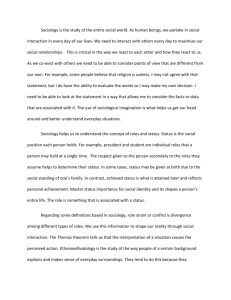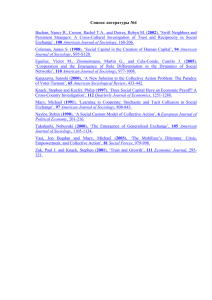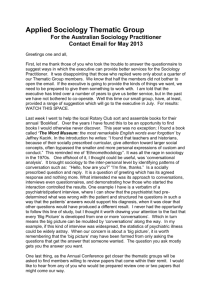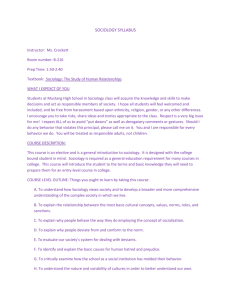Word - TASA
advertisement
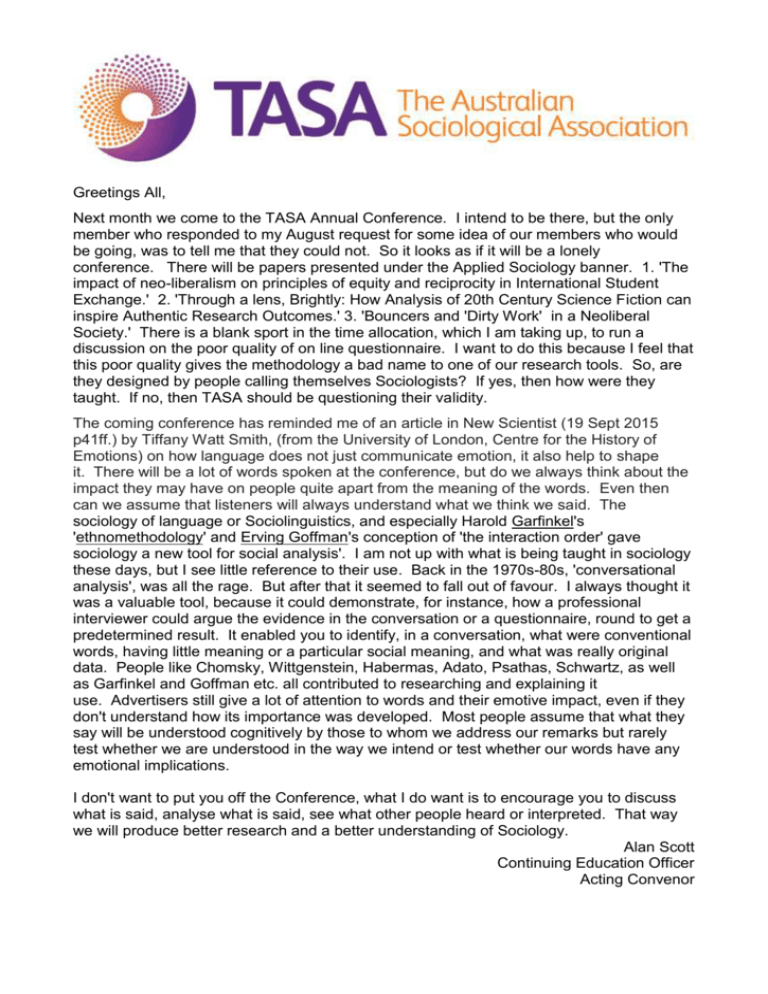
Greetings All, Next month we come to the TASA Annual Conference. I intend to be there, but the only member who responded to my August request for some idea of our members who would be going, was to tell me that they could not. So it looks as if it will be a lonely conference. There will be papers presented under the Applied Sociology banner. 1. 'The impact of neo-liberalism on principles of equity and reciprocity in International Student Exchange.' 2. 'Through a lens, Brightly: How Analysis of 20th Century Science Fiction can inspire Authentic Research Outcomes.' 3. 'Bouncers and 'Dirty Work' in a Neoliberal Society.' There is a blank sport in the time allocation, which I am taking up, to run a discussion on the poor quality of on line questionnaire. I want to do this because I feel that this poor quality gives the methodology a bad name to one of our research tools. So, are they designed by people calling themselves Sociologists? If yes, then how were they taught. If no, then TASA should be questioning their validity. The coming conference has reminded me of an article in New Scientist (19 Sept 2015 p41ff.) by Tiffany Watt Smith, (from the University of London, Centre for the History of Emotions) on how language does not just communicate emotion, it also help to shape it. There will be a lot of words spoken at the conference, but do we always think about the impact they may have on people quite apart from the meaning of the words. Even then can we assume that listeners will always understand what we think we said. The sociology of language or Sociolinguistics, and especially Harold Garfinkel's 'ethnomethodology' and Erving Goffman's conception of 'the interaction order' gave sociology a new tool for social analysis'. I am not up with what is being taught in sociology these days, but I see little reference to their use. Back in the 1970s-80s, 'conversational analysis', was all the rage. But after that it seemed to fall out of favour. I always thought it was a valuable tool, because it could demonstrate, for instance, how a professional interviewer could argue the evidence in the conversation or a questionnaire, round to get a predetermined result. It enabled you to identify, in a conversation, what were conventional words, having little meaning or a particular social meaning, and what was really original data. People like Chomsky, Wittgenstein, Habermas, Adato, Psathas, Schwartz, as well as Garfinkel and Goffman etc. all contributed to researching and explaining it use. Advertisers still give a lot of attention to words and their emotive impact, even if they don't understand how its importance was developed. Most people assume that what they say will be understood cognitively by those to whom we address our remarks but rarely test whether we are understood in the way we intend or test whether our words have any emotional implications. I don't want to put you off the Conference, what I do want is to encourage you to discuss what is said, analyse what is said, see what other people heard or interpreted. That way we will produce better research and a better understanding of Sociology. Alan Scott Continuing Education Officer Acting Convenor
